Posts Tagged ‘banned books’
A History Of Controversial Children’s Books: Sex, Sambo And Obscene Rebellion
ANORAK’s history of controversial children’s books: sex, drugs, sambo’s gay lover and anti-authoritarianism in the classroom.
The Little Red Schoolbook

In 1971 the proprietor of Stage 1 publishers was found guilty of having in his possession obscene books for publication for gain. Richard Handyside was fined £25 on each summons and ordered to pay £110 costs.
The obscene publications were copies of The Little Red Schoolbook written by two Danish schoolteachers, Søren Hansen and Jesper Jensen – and then rewritten by a group of British adults and schoolchildren, including a young Hilary Benn. It urged young readers to question authority and challenge social conventions, and described adults as ‘paper tigers’. Pupils were encouraged to disrupt lessons that they found boring.
The book was widely regarded as an invitation to anarchy, and it was banned in Italy and France. An abridged version was eventually passed for publication in the UK, but it had by this time achieved considerable notoriety. Ironically, the main area of contention was not the political message, but the section giving basic sex education and advice – particularly concerning masturbation – most of which would be on the school curriculum these days. This was of course the convenient pretext chosen the DPP in order to suppress a book that they regarded as socially subversive.
An extraordinary documentary can be heard here.
Noddy
Enid Blyton is by no means the only venerable authoress to find her books falling out of favour as popular opinion changes over the decades, as Richmal Crompton will have known only too well.

She remains the most high-profile example, however, thanks to her ‘Gollywog’ series, which related the adventures of Golly, Woggy and Nigger, who liked nothing better than to stride along, in Blyton’s own words, ‘arm-in-arm, singing merrily their favourite song – which, as you may guess, was “Ten Little Nigger Boys”.’ These books are not currently available in most children’s libraries
More famous are her Noddy books, in which they feature once again. In one particularly pointed incident, Noddy is attacked by golliwogs, who steal his car and leave him stranded.
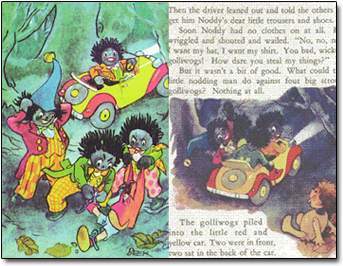
Luckily the Toyland police were very efficient, and always at hand.
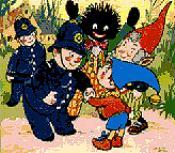
Not all gollies are bad, though. In Golly Town we find a Mr Golly, who is one of Noddy’s best friends. He owns Toyland’s garage, looks after Noddy’s car, and is an all-round bloody good bloke, as this picture proves…
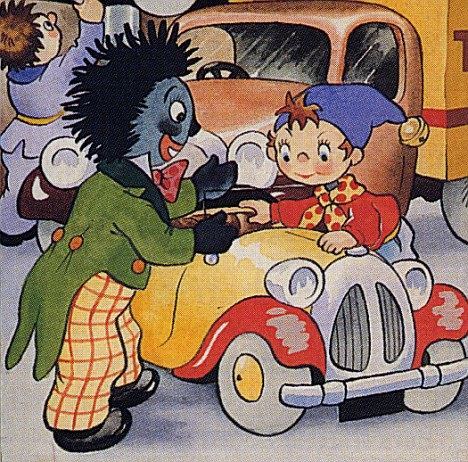
The Tale of Little Black Sambo
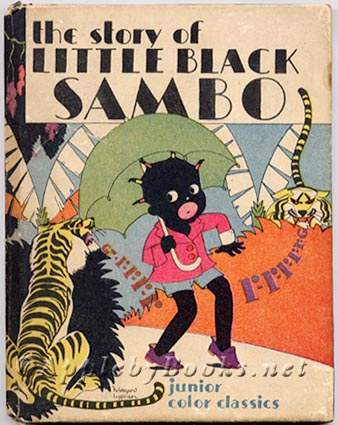
Another former staple of junior school libraries that fell out of favour (though it remains popular in Japan). In 1996, Fred Marcellino produced a set of new pictures, renamed the characters, and republished it under the title The Story of Little Babaji.
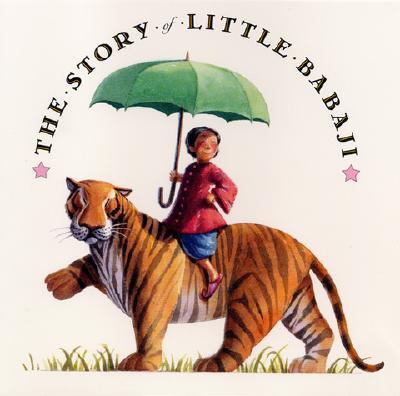
Tintin
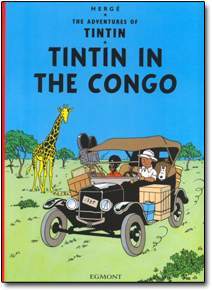
One could be charitable and say that Hergé’s most controversial Tintin adventure merely represented the condescending views of Belgian (and British) society at the time.
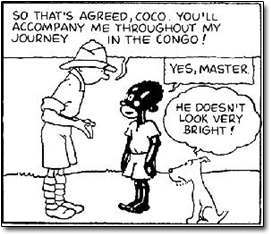
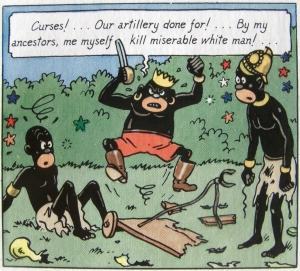
Post-war, they seemed anachronistic and offensive, portraying as they did a nation of stupid, lazy, infantile savages in need of a clever white master. The book quickly fell out of favour (and out of print).
The Brave Cowboy
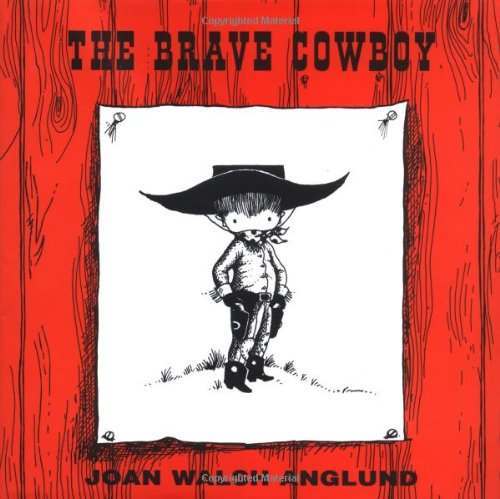
A similar trick was pulled with Joan Walsh Anglund’s charming best-seller, in which scary ‘Indians’ were removed and replaced by white bankrobbers and other ne’er-do-wells.
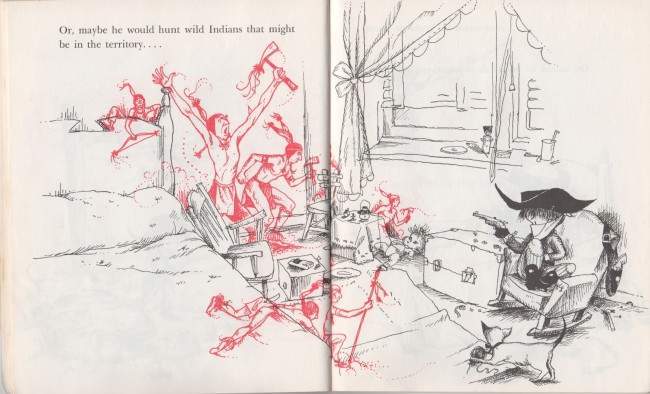
Jenny Lives With Eric and Martin
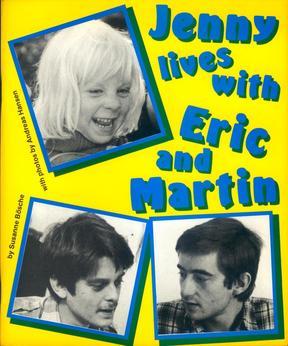
This otherwise unremarkable tale relates the everyday life of five-year-old Jenn, who lives with her dad and his boyfriend.
In 1986 it was reported that the book was in the library of a school run by the Labour-controlled Inner London Education Authority, and this was a major factor in the Tory government passing Section 28 of the Local Government Act, which prohibited the ‘promotion’ of homosexuality. The full, bizarre story can be found here…
And Tango Makes Three
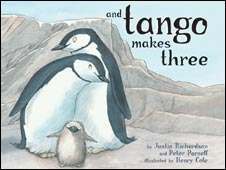
This modern-day ‘Jenny’, based on a true story about two ‘gay’ penguins in New York’s Central Park Zoo has the distinction of having had the most had the most ban requests in the USA in 2006, 2007, 2008 and 2010. In 2009 it came second.
‘It’s regrettable that some parents believe reading a true story about two male penguins hatching an egg will damage their children’s moral development,’ said co-author Justin Richardson. ‘They are entitled to express their beliefs, but not to inflict them on others.’
Posted: 28th, February 2014 | In: Books, Flashback, Key Posts | Comment

